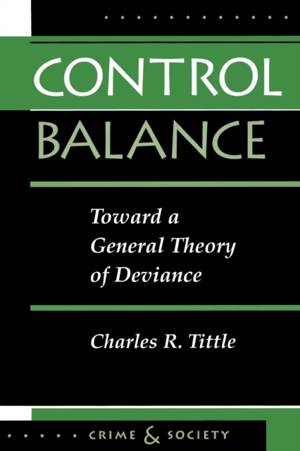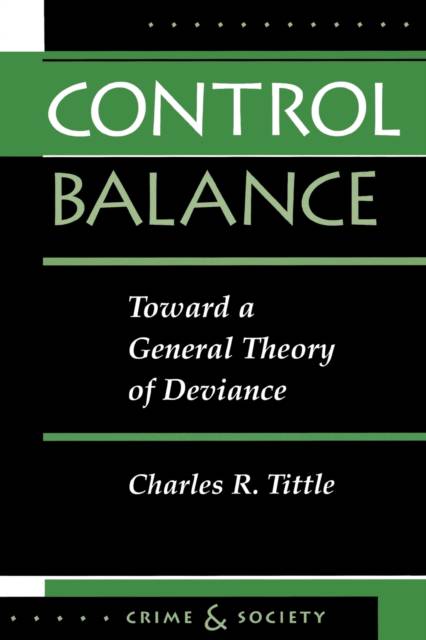
- Afhalen na 1 uur in een winkel met voorraad
- Gratis thuislevering in België vanaf € 30
- Ruim aanbod met 7 miljoen producten
- Afhalen na 1 uur in een winkel met voorraad
- Gratis thuislevering in België vanaf € 30
- Ruim aanbod met 7 miljoen producten
Zoeken
€ 105,45
+ 210 punten
Uitvoering
Omschrijving
A major contribution to the field of crime/deviance, this volume by noted criminologist Charles R. Tittle puts forth an integrated theory of deviance--control balance. Its central premise is that the total amount of control people are subjected to, relative to the control they can exercise, will affect the probability and type of their deviant behavior. In developing control balance, Tittle critically reviews other general theories such as anomie, Marxian conflict, social control, differential association/social learning, labelling, and routine activities and offers reasons why those theories are insufficient. Using real-world examples to illustrate his argument, he contends that deviance results from the convergence of four variables, each of which represents an interactive nexus of several inputs, including most prominently a control imbalance. The variables are predisposition, motivation, opportunity, and constraint. Control balance theory also explains six basic types of deviance, ranging from predation, defiance, and submissiveness on one end of a control ratio continuum to exploitation, plunder, and decadence on the other. Tittle conceives of control balance as a continuation, or temporary culmination, of the collective efforts of crime/deviance scholars who have gone before, presenting it as a vehicle for trying to achieve a fully adequate general theory of deviance.
Specificaties
Betrokkenen
- Auteur(s):
- Uitgeverij:
Inhoud
- Aantal bladzijden:
- 336
- Taal:
- Engels
- Reeks:
Eigenschappen
- Productcode (EAN):
- 9780813326320
- Verschijningsdatum:
- 27/10/1995
- Uitvoering:
- Paperback
- Formaat:
- Trade paperback (VS)
- Afmetingen:
- 155 mm x 234 mm
- Gewicht:
- 503 g

Alleen bij Standaard Boekhandel
+ 210 punten op je klantenkaart van Standaard Boekhandel
Beoordelingen
We publiceren alleen reviews die voldoen aan de voorwaarden voor reviews. Bekijk onze voorwaarden voor reviews.








